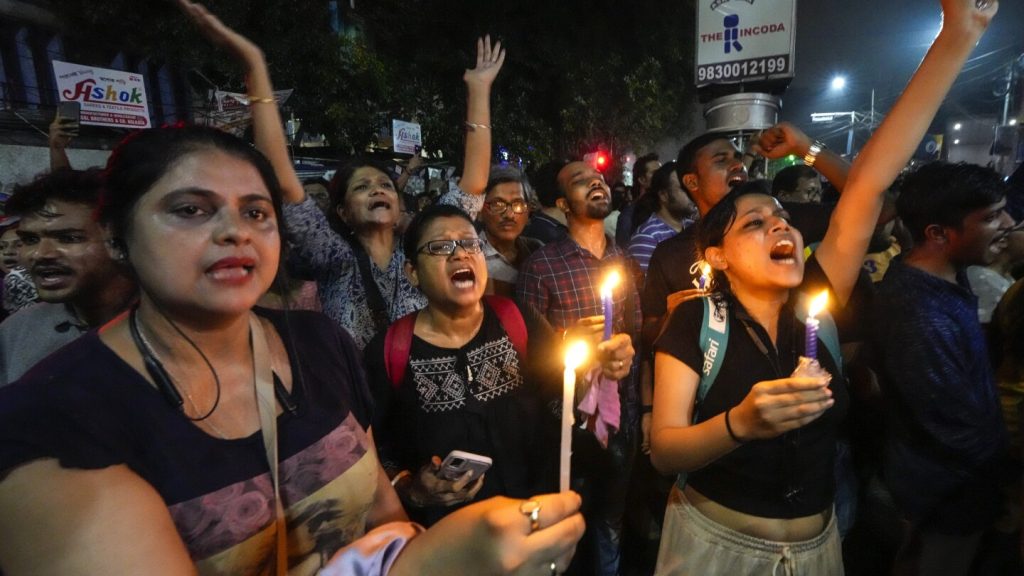Protests erupted in several cities across India following the rape and murder of a trainee doctor, leading to a violent attack on a medical college campus in Kolkata. The unrest began when a 31-year-old trainee doctor was found raped and killed on August 9, resulting in scores of people going on a rampage at the R.G. Kar Medical College. Police fired tear gas and several officers were injured during the clash. A police volunteer was arrested in connection with the crime, and the case was handed over to federal investigators following a court order.
As a result of the incident, government hospitals in various cities suspended medical services except for emergency departments as protesters demanded justice, labeling it a case of gang rape involving multiple perpetrators. The National Crime Records Bureau reported a 20% increase in rape cases in 2022, with 31,516 reported incidents. However, many crimes against women in India go unreported, largely due to the stigma surrounding sexual violence and a lack of faith in the police. Women’s rights activists highlight the particular challenge faced in rural areas, where victims are often shamed by the community, and families fear the repercussions on their social standing.
Prime Minister Narendra Modi addressed the issue of atrocities against women in the country, acknowledging the widespread outrage and calling for justice. State Governor C.V. Ananda Bose visited the medical college to review the situation, while opposition leader Rahul Gandhi criticized state officials for seemingly protecting the suspects instead of ensuring punishment. The issue of rape and sexual violence has been in the spotlight since the brutal 2012 gang rape and killing of a student in New Delhi, which sparked massive protests and led to the amendment of rape laws in 2013 to impose harsher penalties. Despite these legal reforms, activists argue that the government still falls short in adequately protecting women and holding attackers accountable.


